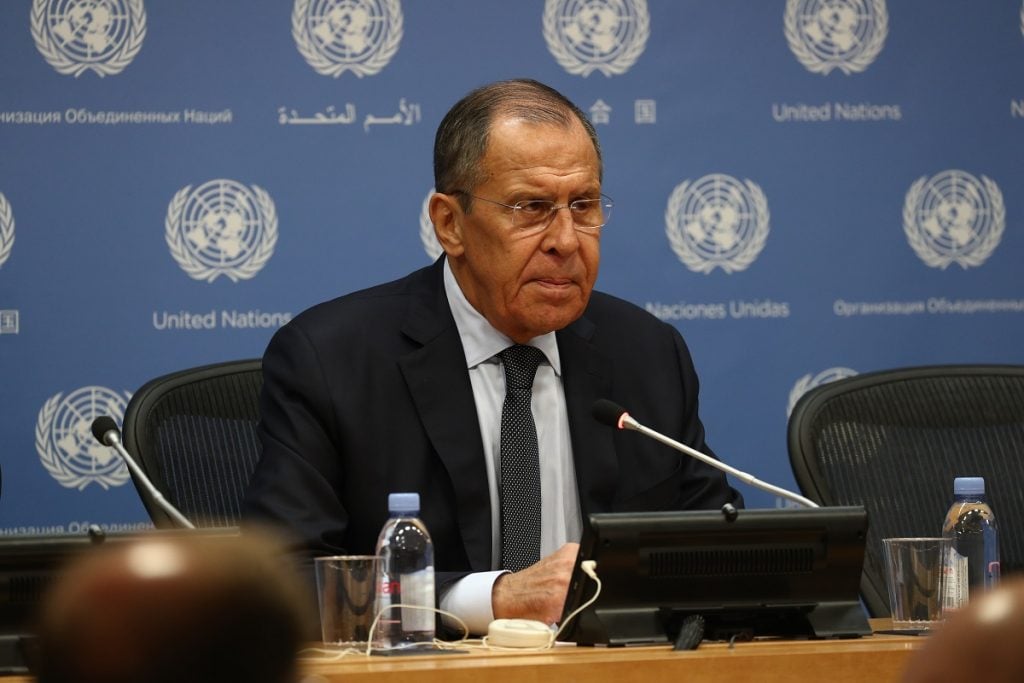Russian Foreign Minister Sergey Lavriv has expressed hopes that “Kyiv regime would not follow the path taken by Mikheil Saakashvili in August 2008” and “won’t break into a military adventure.”
During November 30 joint press conference with his Brazilian counterpart, the Russian Foreign Minister blamed the current problems in Ukraine on the Western capitals inciting Kyiv to anti-Russian actions, citing NATO’s 2008 pledge to eventually accept Georgia and Ukraine as the members of the Alliance as the most flagrant example.
“Then President of Georgia, Mikheil Saakashvili, instantly ‘got aroused’ (which is not difficult for him to do) and began aggression, military operations and bombing his own citizens and Russian peacekeepers,” top Russian diplomat claimed, adding that “the Ukrainian leadership of the day had more prudence and did not follow this bad example.”
But, FM Lavrov continued, “the current Ukrainian authorities demonstrate somewhat different qualities and are subject to the bad influence that the West actively tries to exert.” He said “we don’t have the right to exclude” the possibility that the “Kyiv regime embarks on military adventure. All of this presents direct threat to security of the Russian Federation.”
In this context he referred to the request of President Vladimir Putin made to the diplomatic service to “ensure stable guarantees of independence” for Russia, and referred to OSCE commitments. The OSCE Ministerial Council opens on 2 December in Stockholm.
This is not the first time Russian officials refer to 2008 war in Georgia in the same context as the ongoing military escalation in Ukraine.
On 22 November, the official release of the Russian Foreign Intelligence Service said “provocative policy of the U.S. and the EU, who knowingly nurture the feeling of permissiveness and impunity in Kyiv, is a cause of extreme concern. Similar situation was observed in Georgia on the eve of the events of 2008. Then M. Saakashvili “broke the leash” and was trying to destroy Russian peacekeepers and civilian population of South Ossetia. He paid dearly for that.”
The Russian military invaded Georgia on August 7, 2008, leading to the brief Russo-Georgian War over Tskhinvali Region/South Ossetia and the Kremlin’s subsequent recognition of two Georgia’s Abkhazia and Tskhinvali/regions on August 26, 2008.
Well before 2008, Kremlin openly meddled in local political affairs in the two regions and backed separatist leaders. Former and current Russian officials have also confirmed multiple times that Russian intelligence and military helped Abkhaz and S. Ossetian secessionists against Tbilisi since at least 1990s, including with aiding North Caucasian militants to fight against Georgian forces.
This post is also available in: ქართული (Georgian) Русский (Russian)

